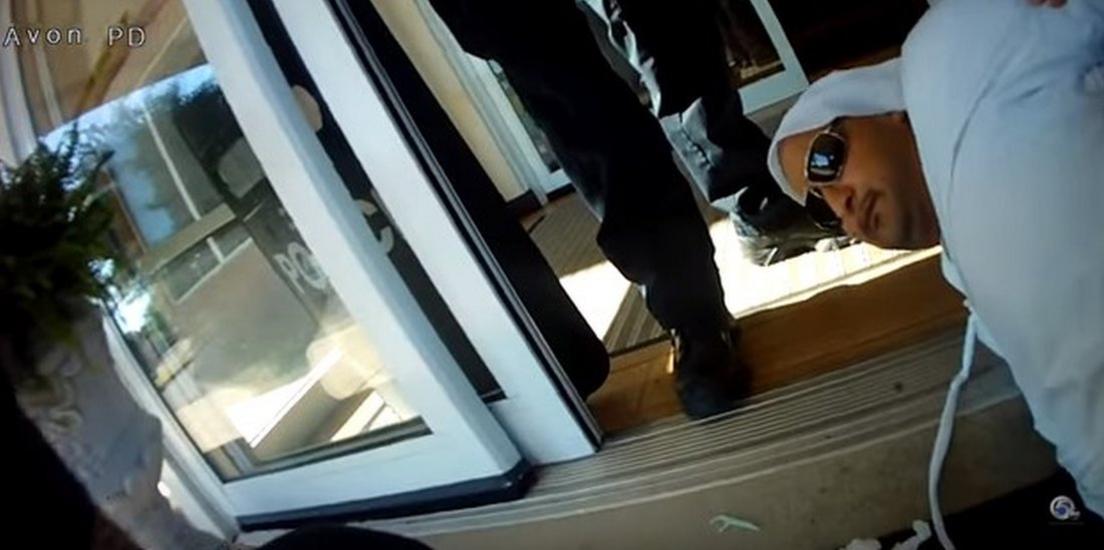UAE warns against wearing national dress abroad
- Published

A police video showing Ahmed al Menhali's arrest was published online
United Arab Emirates (UAE) nationals are being urged not to wear national dress outside the region, days after an Emirati man was detained in the US.
Ahmed al-Menhali, a businessman, was detained while wearing traditional robes in a hotel in Avon, Ohio.
Media in Ohio said a hotel employee feared he was pledging allegiance to so-called Islamic State group (IS).
The UAE's ministry of interior issued advice on Saturday urging citizens to be careful about what they wear abroad.
UAE nationals should avoid wearing traditional costume "to preserve their safety", the ministry said, external (in Arabic) without referencing the Ohio incident.
Ohio broadcaster WEWS reported that police received a call from the sister of a hotel clerk who had said there was a man "in full headdress with multiple disposable phones pledging his allegiance to Isis" [another name for IS].
Police later received a call from the employee's father alleging the same thing.
'They were brutal'
A video of Mr Menhali's arrest, filmed by police, was published by WEWS, external on Friday.
It shows armed police approaching him outside a hotel and forcing him to lie on the floor, before searching him.
Mr Menhali, who is wearing white robes, the ghutra headdress and the agal - cords to hold the headdress in place - is heard repeatedly asking why police had stopped him.
"They were brutal with me," Mr Menhali told the UAE newspaper The National, external. "They pressed forcefully on my back. I had several injuries and bled from the forceful nature of their arrest."
Avon's mayor and police chief have since apologised to Mr Menhal, externali, who was recovering in Ohio after treatment following a stroke.
After meeting him, Muslim community leaders invited the officials to break fast with them as part of the holy month of Ramadan.
The UAE ministry of interior warning was distributed on Saturday. A day later, the ministry also issued travel advice to Emirati citizens, external, urging them to respect bans of the full-face veil where they are in place.
The note also urges people "to take caution while abroad due to the security developments in some European countries, triggered by the unfolding unrest in the Middle East region, and their fallout, especially the refugee crisis".
In April, an Iraqi university student in California was escorted off a Southwest Airlines flight for having a conversation in Arabic.
- Published8 May 2016

- Published18 April 2016
